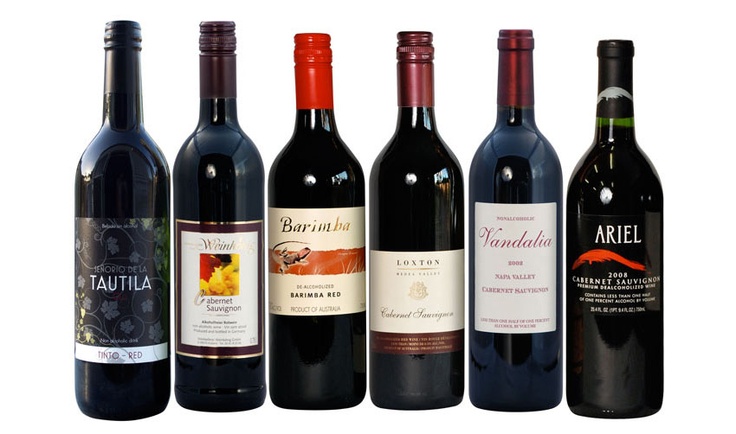Wine has long been a symbol of celebration, sophistication, and social connection. However, in recent years, growing awareness about health, wellness, and mindful living has sparked a dramatic rise in the popularity of non-alcoholic wine. Once considered a niche product or a poor substitute for traditional wine, non-alcoholic wine has matured into a refined beverage category in its own right—one that satisfies the palate without the effects of alcohol.
This article takes an in-depth look at non-alcoholic wine—what it is, how it’s made, its benefits, varieties, and why it's capturing the attention of wine lovers and health-conscious consumers alike.
What Is Non-Alcoholic Wine?
Non-alcoholic wine is wine that has undergone the traditional fermentation and aging processes, but has had most or all of its alcohol content removed. Legally, in many countries, wine labeled as "non-alcoholic" contains less than 0.5% alcohol by volume (ABV), which is about the same amount found in some fermented foods like bread or kombucha.
This is not to be confused with grape juice, which is unfermented and lacks the complexity of flavor, tannins, and structure that come from wine fermentation. Non-alcoholic wine, on the other hand, retains the aromatic and taste characteristics of traditional wine—just without the intoxicating effects.
How Is Non-Alcoholic Wine Made?
Creating non-alcoholic wine begins in the same way as traditional winemaking: grapes are harvested, fermented, and aged. The magic happens in the final step, when alcohol is removed while trying to preserve the integrity of the wine’s flavor.
Popular Methods of Dealcoholization:
- Vacuum Distillation: This involves heating the wine under reduced pressure so alcohol evaporates at a lower temperature, minimizing flavor loss.
- Reverse Osmosis: Wine is filtered through a membrane to separate alcohol and water from the flavor components, which are then recombined without the alcohol.
- Spinning Cone Column: This is a high-end method that separates components of the wine using centrifugal force and steam, delicately removing alcohol while retaining aroma and complexity.
Each method aims to keep the wine’s body, aroma, and taste as close to the original as possible, making non-alcoholic wine a credible alternative for discerning drinkers.
Why Choose Non-Alcoholic Wine?
There are many reasons people are embracing non-alcoholic wine, ranging from health benefits to personal and social considerations.
Health and Wellness
Non-alcoholic wine has fewer calories and no alcohol-related health risks. It allows consumers to enjoy wine’s flavor and ritual without affecting liver function, sleep quality, or mental clarity. Some studies even suggest that alcohol-removed wine retains antioxidants like resveratrol, which are beneficial for heart health.
Sobriety and Recovery
For individuals in recovery or those who choose not to drink for personal reasons, non-alcoholic wine offers a socially inclusive option that respects their lifestyle.
Pregnancy and Medication
Pregnant individuals and those taking medications that interact with alcohol can enjoy non-alcoholic wine safely, without compromising on taste or the celebratory feeling.
Sober Curious Movement
The growing "sober curious" trend, especially among millennials and Gen Z, promotes mindful drinking. Non-alcoholic wine caters perfectly to this demographic.
Types of Non-Alcoholic Wine
Just like alcoholic wines, non-alcoholic wines come in a wide variety of styles. This diversity allows consumers to enjoy different profiles for different occasions and food pairings.
Red Wines
Non-alcoholic reds like Merlot, Cabernet Sauvignon, and Pinot Noir offer bold flavors with hints of blackberries, spice, and oak. They pair well with grilled meats and hearty pasta dishes.
White Wines
Sauvignon Blanc and Chardonnay are popular alcohol-free whites, offering fresh citrus, floral, and stone fruit notes. These pair beautifully with fish, salads, and light pasta.
Rosé Wines
Non-alcoholic rosés are dry, fruity, and perfect for warm weather or brunch. They blend the freshness of white wine with a touch of red berry notes.
Sparkling Wines
Alcohol-free sparkling wines like Brut or Rosé Sparkling are ideal for celebrations and mimic the effervescence of champagne or prosecco.
Top Non-Alcoholic Wine Brands
Several brands have established themselves in this growing sector by focusing on quality, innovation, and authenticity.
- Thomson & Scott Noughty – Famous for their organic sparkling wine with no added sugar.
- Leitz Eins Zwei Zero – A respected German winemaker offering excellent Riesling and Pinot Noir.
- Giesen 0% – A New Zealand brand known for flavorful Sauvignon Blanc and Rosé.
- Ariel Vineyards – One of the pioneers of non-alcoholic wines in the U.S., known for Cabernet Sauvignon and Chardonnay.
- Surely – A newer company with a stylish image and crisp, clean wines made from premium California grapes.
These brands demonstrate that non-alcoholic wine isn’t just an alternative—it’s a category with prestige.
Pairing Non-Alcoholic Wine with Food
Food and wine pairing remains as important with non-alcoholic wine as with traditional wine. The complexity and acidity of alcohol-free wine make it ideal for dining.
- Red wines: Great with red meat, mushrooms, and barbecue.
- White wines: Complement seafood, chicken, and creamy dishes.
- Rosé wines: Excellent with cheese boards, fruits, and salads.
- Sparkling wines: Versatile with appetizers, sushi, and even desserts.
Non-alcoholic wines can elevate any meal or social gathering without impairing your senses.
Where to Buy Non-Alcoholic Wine
Thanks to its growing popularity, non-alcoholic wine is now widely available:
- Online stores like Boisson, Better Rhodes, and Dry Drinker offer a wide selection.
- Local supermarkets and health food stores often carry leading brands.
- Specialty non-alcoholic shops are popping up in cities worldwide, focusing solely on alcohol-free beverages.
Many online platforms offer tasting kits or bundles, making it easier for newcomers to explore different varieties.
Conclusion
The rise of non-alcoholic wine signals a broader cultural shift toward health-conscious, mindful consumption. No longer an afterthought, it has become a respected category with real craftsmanship, flavor, and appeal.
Whether you're abstaining from alcohol, experimenting with sobriety, or simply curious about new tastes, non-alcoholic wine offers a thoughtful, delicious, and elegant way to enjoy the ritual of wine—minus the buzz. Cheers to a new era of inclusive, flavorful drinking!





Comments